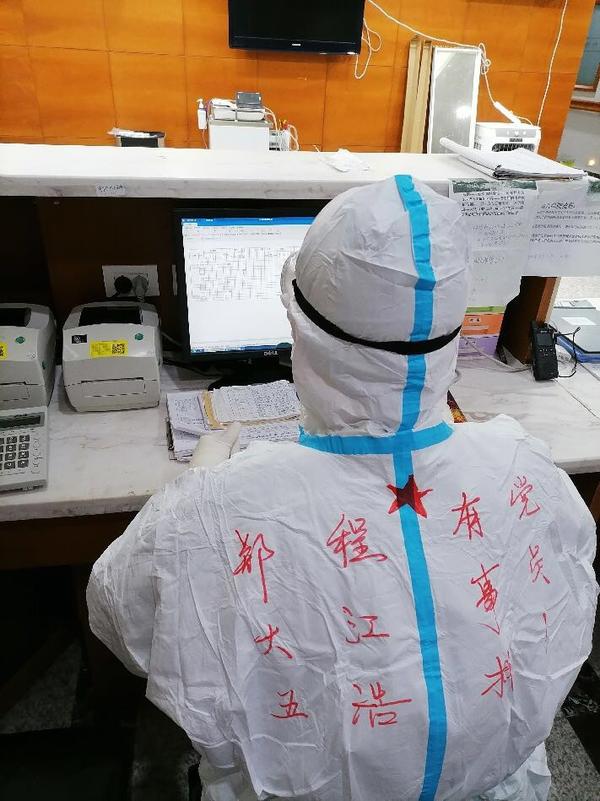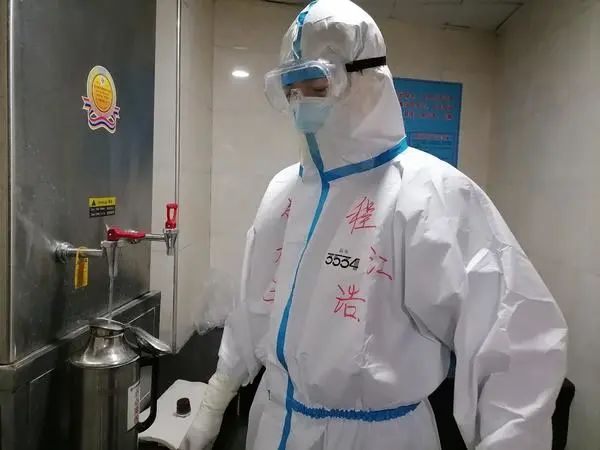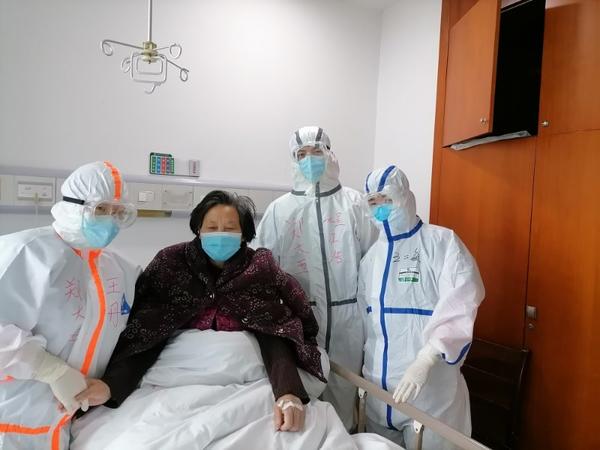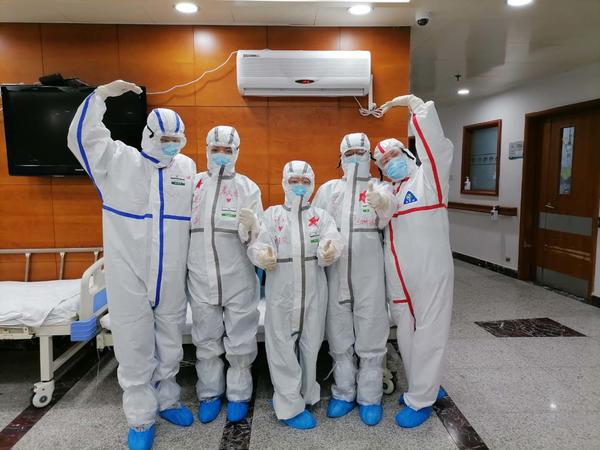


We are spinning our own fates, good or evil, and never to be undone. Every smallest stroke of virtue or of vice leaves its never so little scar.
——William James, The Principles of Psychology
By March 16, Cheng Jianghao had been working in the Wuhan Fourth Hospital for 50 days. Although he finishes his day at 8 p.m. it isn’t until 10 p.m. that he is able to return to the hotel to have dinner. The next day, he goes back to work for another night shift.
Born in 1996, Cheng is a male nurse from the Fifth Affiliated Hospital of Zhengzhou University in Zhengzhou city, central China’s Henan province. Young and brave, he is one of the first Henan medical workers sent to aid Wuhan, a vital part of the line of defense against the virus at a crucial time.
Varying working times and irregular eating patterns have already become a daily routine for this 24-year-old. Despite the painstaking efforts needed in the fight against the coronavirus, Cheng regarded it as the most precious experience in his life.
No hesitation

On January 25, the first day of Chinese New Year, Cheng received a notice from the hospital after a night shift: the hospital planned to send medical staff to Wuhan to assist in virus control efforts.
Cheng did not have a moment’s hesitation about taking the task. His parents, though worried about his safety, supported his decision, saying that a qualified medical worker should never step back during a testing time like this.
“I have an older sister who is taking care of my parents. I’m single without children, so I have fewer concerns,” Cheng said.
As a result, after one day of preparation and training, Cheng left for Wuhan to help in the battle against COVID-19. Among the 28 medics from Cheng’s hospital sent to Wuhan, nearly 40 percent were born in the 1990s. Cheng was the youngest member of the team.
Seeing patients as friends

Distributing medicine, feeding patients and processing medical waste material are just some of the tasks that make up a shift in the insolation wards in Wuhan Fourth Hospital. Although a shift usually lasts 4 hours, it often takes over 8 hours for Cheng to complete due to the complex precautions and disinfection procedures that have to be undertaken before and after work.
He recalled the first time he entered the isolation ward: fog covered his goggles as soon as he entered, and his protective suit was completely soaked in half an hour. But now, Cheng has managed to adapt to these working conditions.
As there is no specific drug that kills the coronavirus, it is essential to provide patients with humanistic care in addition to medical treatment. Cheng believes that psychological intervention is very effective in easing the stress and anxiety caused by the disease.
In Cheng’s eyes, the patients are also his friends and even family members, and he sometimes learnt to speak Wuhan dialect from them. “I like Wuhan dialect. It sounds warm and friendly,” he said.

When Cheng learnt that there was an elderly patient in her 80s who was suffering from Alzheimers disease and often missed her family, he told her, “Grandma, just look at me as your grandson. I’ll take care of you.” Every time Cheng was on duty, he would look after her carefully and chat with her.
To everyone’s delight, the elderly patient was cured in early March. Before being discharged, she gave Cheng a piece of her favorite cookie.
Unspoken love
When he first arrived in Wuhan, Cheng said, the total number of patients in Wuhan was very large, with many in severe condition. After days of round-the-clock efforts by all the medics, more and more patients were cured and discharged. “I’m happy to see more and more patients being discharged from the hospital, and those who are still under treatment are becoming positive and optimistic. Our job involves a lot of hard work, but it’s worth it.”
As of March 15, Hubei had seen no newly confirmed COVID-19 cases for 11 consecutive days in its 16 cities and prefectures outside Wuhan. The city of Wuhan has also seen single-digit daily increases for five days.

“I am very grateful to have such a period of time in my life, which lets me better understand the meaning of life as a nurse and makes me cherish everything around me. That’s why Wuhan has become a city with special meaning for me."
Cheng hopes for the epidemic to end soon and for he and his colleagues to return home safely. In addition, he made a special decision that after the epidemic, he would confess his love to his favorite girl.
“There’s a girl I love, but I don’t have the courage to tell her yet. When I return home safely after the outbreak, I will confess my love to her and ask her to be my girlfriend.”

 Award-winning photos show poverty reduction achievements in NE China's Jilin province
Award-winning photos show poverty reduction achievements in NE China's Jilin province People dance to greet advent of New Year in Ameiqituo Town, Guizhou
People dance to greet advent of New Year in Ameiqituo Town, Guizhou Fire brigade in Shanghai holds group wedding
Fire brigade in Shanghai holds group wedding Tourists enjoy ice sculptures in Datan Town, north China
Tourists enjoy ice sculptures in Datan Town, north China Sunset scenery of Dayan Pagoda in Xi'an
Sunset scenery of Dayan Pagoda in Xi'an Tourists have fun at scenic spot in Nanlong Town, NW China
Tourists have fun at scenic spot in Nanlong Town, NW China Harbin attracts tourists by making best use of ice in winter
Harbin attracts tourists by making best use of ice in winter In pics: FIS Alpine Ski Women's World Cup Slalom
In pics: FIS Alpine Ski Women's World Cup Slalom Black-necked cranes rest at reservoir in Lhunzhub County, Lhasa
Black-necked cranes rest at reservoir in Lhunzhub County, Lhasa China's FAST telescope will be available to foreign scientists in April
China's FAST telescope will be available to foreign scientists in April